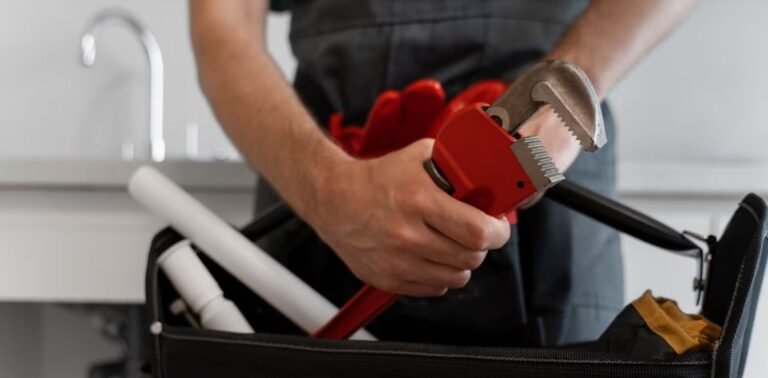A sophisticated plumbing system that keeps everything running smoothly is concealed behind walls, under floors, and above ceilings in the modern home, which is an engineering marvel. On-demand water is delivered, drained, and whisked away by devices that precisely control pressure and temperature. However, even the best-maintained plumbing eventually needs repair, just like any mechanical system. Some plumbing problems require the expertise, equipment, and abilities of a professional plumber, yet many homeowners are inclined to handle them themselves, often motivated by do-it-yourself videos and cost-cutting objectives. Without the right skills, trying to solve major plumbing issues can result in more extensive damage, increased expenses, and even safety risks. We’ll examine why it’s preferable to leave some plumbing repairs to the professionals in this post.
Plumbing Systems’ Hidden Complexity
Although plumbing systems might seem simple at first, most homeowners are unaware of how complex they are. Codes vary by region, materials are not always compatible, and pipes are under pressure. A small leak could indicate a more serious, systemic problem, including damaged pipes, incorrect installation, or shifting foundations. Instead of only addressing the symptoms, a skilled plumber has the expertise to find the underlying reasons. Additionally, they are aware of the interrelationships between every plumbing system component, guaranteeing that repairs are not only long-lasting but also efficient. On the other hand, do-it-yourself solutions could cover up issues for a while without fixing the root cause.
Mold and Water Damage Risk
Water is both nourishing and harmful. A minor leak that goes unnoticed can cause silent harm to plasterboard, erode timber frames, and encourage the spread of mold, all of which are dangerous for your health and the structure. A properly waterproof seal or adequate pressure management are frequently lacking in do-it-yourself repairs, which leads to persistent leaks that worsen over time. To find concealed leaks and guarantee long-term repairs, experts employ sophisticated diagnostic equipment such as moisture meters, thermal imaging, and pressure gauges.
Safety Issues with High-Pressure and Gas Systems
Simple blockages and faucet replacements are only one type of plumbing repair. When handling complex issues, even one mistake might cause fatal consequences. To deal with these problems, professional plumbers need to be licensed and trained, frequently following stringent regulations. Also, you need to insist on local plumbers who know the local regulations, especially in places where these rules are very strict. For instance, if you live in Australia, sticking to a knowledgeable plumber from Sydney is a great way to go because these people know all about local rules and should do the job right. Additionally, they are insured, protecting homeowners in the unlikely event that something goes wrong. DIY just isn’t worth the risk when safety is involved.
Equipment, Technology, and Knowledge
The specific tools that plumbers use daily are absent from even the most well-stocked household toolkit. Among the tools used by experts to provide accurate and effective repairs are hydro jetters, pipe cameras, leak detectors, and pipe-bending tools. DIYers are frequently forced to rely on guessing in the absence of this equipment, which can result in inadvertent harm or incomplete repairs. Furthermore, professionals keep up with the most recent developments and industry best practices because technology is always changing. Their knowledge guarantees optimal performance and code compliance, whether they are rerouting existing pipes to fit new appliances or diagnosing an issue with a smart water heater.
Implications for Law and Insurance
Many people are not aware that doing plumbing repairs on their own can violate local building rules or void insurance policies. For instance, the homeowner might be held accountable if a do-it-yourself repair results in floods and destroys a neighbor’s property, particularly if the repair was not done following the law. Permits are frequently needed by municipalities for specific plumbing work, and qualified experts know how to get them and make sure the work passes inspection. Furthermore, poorly done plumbing can lower a home’s resale value, particularly if prospective buyers ask for inspection reports. Employing a professional offers long-term legal protection, peace of mind, and written evidence of high-quality work.
DIY plumbing can easily become a pricey lesson due to hidden damage and safety risks, legal repercussions, and higher long-term expenses. Experts bring precision, training, cutting-edge tools, and peace of mind in addition to their wrench. Homeowners can safeguard their property and the health and safety of their occupants by understanding when to call in the professionals.

